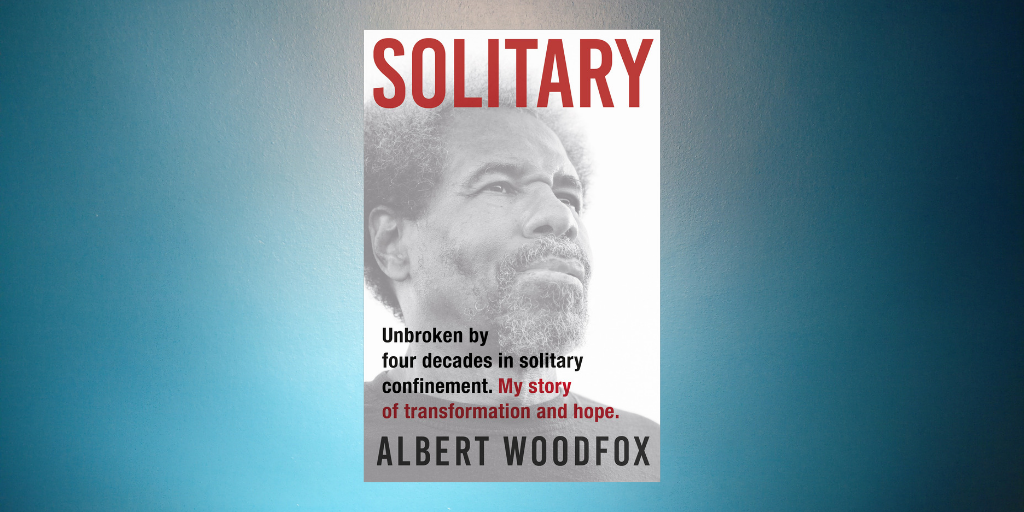
Twenty-three hours a day. Forty-three years. Three men. A six-by-nine foot cell. These are the all important numbers that form the basis of Albert Woodfox‘s memoir Solitary, which covers one of the biggest miscarriages of justice in U.S. history. This story is one that will enrage you so much you’ll want to throw the book at those lawmakers who first hurled it at Woodfox all those years ago.
Woodfox was born in New Orleans into poverty. He never knew his father. His mother often had to prostitute herself to make ends meet. When Woodfox reached his teenage years he started to commit petty crimes, but these escalated as time passed, before he eventually received a long sentence for an armed robbery.
Whilst incarcerated, Woodfox and fellow prisoner, Herman Wallace, founded Angola Prison’s chapter of The Black Panther Party. One day a white guard named Brent Miller was murdered at work. The police swooped and pinned Miller’s death on Woodfox, Wallace and Robert King. They became known as the Angola Three and were sent to solitary confinement.
The Angola Three were subjected to violence and psychological torture. Whilst no evidence was found to link them to the crime, they were found guilty at trial. Their repeated attempts at appeals failed and part of this can be chalked up to structural issues like racism and poverty. Solitary goes into detail about the trio’s long, hard journey for justice. It’s an inspirational story, with Woodfox demonstrating how he reformed himself by educating others along with himself.
Woodfox is a well-read man and this shines through in the descriptive and often poetic prose. He quotes and makes use famous proverbs and the words of influential people from history as inspiration; including Nelson Mandela, Malcolm X and George Jackson, to name a few. All of this comes together to provide a rich commentary of his life behind bars. It also helps readers who are unfamiliar with the penal system to gain some understanding of a subject that is rarely covered.
Some readers may find the legal descriptions here a little dry, especially as Woodfox describes their repeated appeals. These are, however, all part of his story and one could argue that they belong here just as much as his paragraphs about peaceful protests. Woodfox can be a little detached when remembering his own crimes but you can see how he eventually found the path to good and endured against the odds.
Solitary is an intelligent memoir about an unbreakable human spirit. Whilst it isn’t always an easy read, it is an important one, because it shines a light on a significant miscarriage of justice. Woodfox’s story is searing in its examination of justice but it is also a testament to resilience, friendship and strength.
![]()
![]()
![]()
![]()
![]()
THREE AND A HALF STARS (OUT OF FIVE)
Albert Woodfox’s Solitary is available now through Text Publishing.
